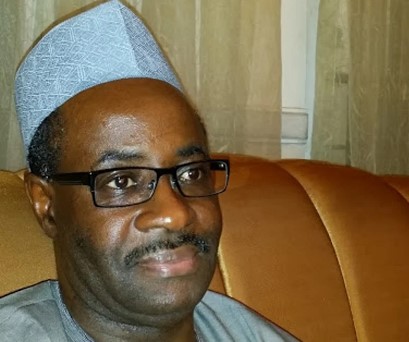Clarifying Project Allocation and Addressing Regional Disparities in Nigeria
The Budget Office of the Federation recently clarified the allocation of federal projects under President Bola Tinubu’s administration, dispelling misconceptions surrounding a circulating chart that misrepresented national projects as Lagos-exclusive initiatives. The Director-General, Tanimu Yakubu, emphasized that the chart misleadingly categorized national infrastructure projects passing through Lagos, such as highways and transport corridors, as solely benefiting Lagos. He clarified that while Lagos-specific projects like airport fencing and Carter Bridge works amounted to approximately N1.2 trillion, the remaining N2.7 trillion attributed to Lagos encompassed national projects benefiting the entire federation. Yakubu used the analogy of the Kano–Maiduguri expressway, arguing that classifying it as a “Maiduguri-only project” would be similarly flawed, as these are national arteries crucial for interconnectivity and not isolated local developments.
The Budget Office’s clarification aimed to provide a more accurate picture of project distribution across geopolitical zones. The data revealed that the North-West zone received the largest share of approved projects, totaling N5.97 trillion, representing over 40% of the total N10.92 trillion approvals. The South-South followed with N2.41 trillion, the North-Central with N1.13 trillion, the South-West (excluding Lagos) with N604 billion, the South-East with N407 billion, and the North-East with N400 billion. This distribution underscores the North-West’s position as the primary beneficiary of approved projects under the current administration.
Yakubu highlighted key projects within the North-West, including the revival of the 255 megawatts Kaduna Power Plant, a project conceived during the late President Umaru Yar’Adua’s administration but subsequently abandoned. Other significant infrastructure initiatives include the Kaduna–Kano expressway, the Kano–Maiduguri highway, and the Sokoto–Illela corridor. These projects, alongside investments in education and security, demonstrate the government’s focus on developing the North-West region.
The Federal Government, through the Minister of Information and National Orientation, Mohammed Idris, reiterated its commitment to fairness, equity, and justice in the allocation of national projects, appointments, and opportunities. The government emphasized its dedication to balanced development and inclusivity, citing major infrastructure projects like the Lagos–Calabar Coastal Highway, the Badagry–Sokoto Highway, and the Trans-Saharan Highway as examples of its commitment to geographic balance. These projects are expected to generate over 250,000 jobs nationwide, contributing to economic growth and development across various regions.
The allocation of resources and projects across different regions in Nigeria often sparks debate and scrutiny. The Budget Office’s clarification and the government’s assertion of equitable distribution aim to address these concerns. The significant allocation to the North-West, while justified by the government based on specific project needs and regional development priorities, raises questions about the balance between addressing regional disparities and ensuring equitable distribution across all zones.
The ongoing discussion surrounding project allocation highlights the complexities of balancing regional development needs with national priorities. As the government proceeds with its infrastructure development plans, it faces the challenge of demonstrating that these projects genuinely benefit all Nigerians and contribute to reducing regional inequalities. The long-term impact of these projects and their contribution to overall national development will be a key indicator of the government’s success in achieving its goals of fairness, equity, and balanced development.


